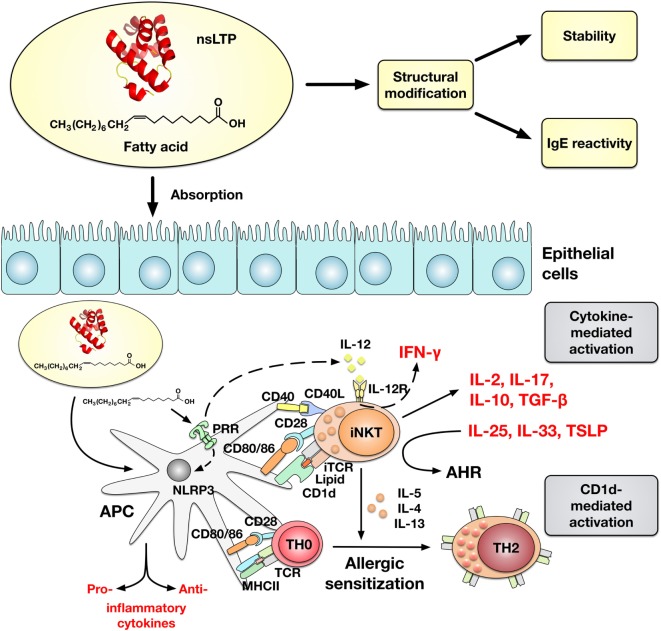Figure 1.
Impact of lipid binding to non-specific lipid-transfer proteins (nsLTPs) on the IgE-reactivity and allergic sensitization. Lipid binding can affect gastrointestinal stability and IgE-reactivity of nsLTPs. Whether the altered IgE-reactivity upon lipid binding is accompanied by structural modification of the protein remains to be elucidated. Moreover, lipids can induce a cytokine- or CD1d-mediated activation of invariant natural killer T (iNKT) cells. Microbial lipids are sensed by pathogen recognition receptors (PRRs) on APCs (DC and Mϕ) and induce an IL-12-mediated activation of iNKT cells which is accompanied by INF-γ secretion. Other lipid ligands which are administrated to APCs in a complex with nsLTPs are internalized, loaded on CD1d, and presented to the TCR (Vα24/Jα18+ in humans) on iNKT cells. The CD1d-restricted activation of iNKT cells by nsLTP–lipid complexes is suggested to promote the allergic sensitization by inducing TH2-cytokine secretion. In line with this, iNKT cells can promote airway hyperreactivity (AHR) in the presence of IL-25, IL-33, and TSLP. However, activated iNKT cells can display a TH1- (INF-γ) and TH2- (IL-5, IL-4, and IL-13) like plasticity and lipids can either promote or attenuate NLRP3 inflammasome activity and induce both pro- or anti-inflammatory cytokines.

